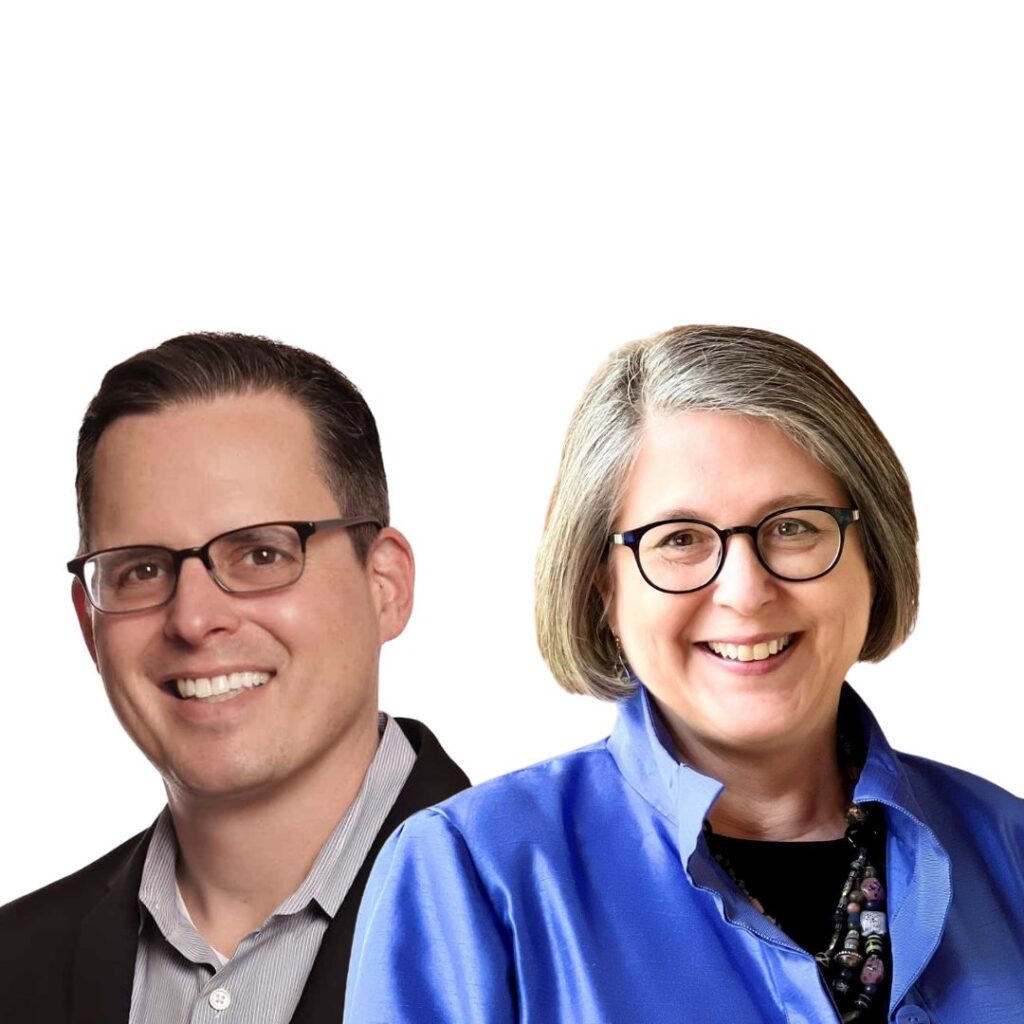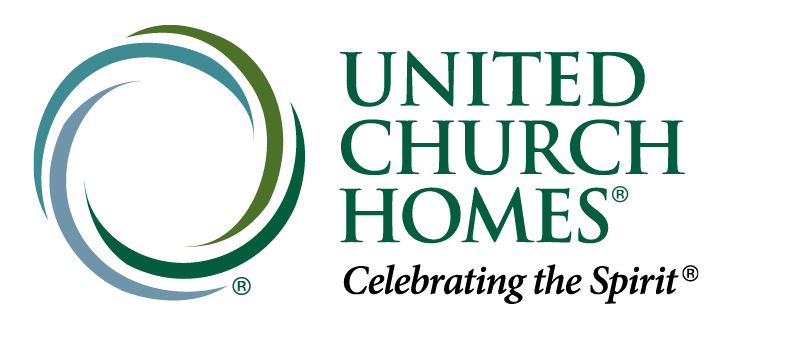
Highlights from this week’s conversation include:
Join Us at the Ruth Frost Parker Center for Abundant Aging’s Annual Symposium: Meaning, Purpose, & Redefining Retirement on October 4, 2024.
Abundant Aging is a podcast series presented by United Church Homes. These shows offer ideas, information, and inspiration on how to improve our lives as we grow older. To learn more and to subscribe to the show, visit abundantagingpodcast.com.
Michael Hughes 00:07
Hey there, and welcome to The Art of aging, which is part of the abundant agent podcast series where United Church homes. And on this show we like to unpack what it means to age in America with positive empowering stories that inspire everyone everywhere to age with abundance. And this podcast series is sponsored by our Ruth Frost Parker center for abundant aging, which is led by the amazing Beth Long Higgins, who joins me on the podcast today. And this is kind of something I’ve been really looking forward to because as part of a series, Beth and I are going to be unpacking some of the key principles of aging, or maybe some of these age tropes that really do define the Parker Center’s work. And this is all leading up again, to what we hope to be an amazing Symposium on Friday, October 4. Beth, I’m so excited to have you here. Welcome.
Rev. Beth Long-Higgins 00:54
Thanks. You know, in some ways, we’re just what we’re doing is we’re just going to record conversations that you and I have all the time. So this is going to this is really well,
Michael Hughes 01:01
I know, this one I’m looking forward to because you know, we’ve always sort of had these conversations, you know, just you know, at, you know, off the corner of our desks maybe or just, you know, as we see each other, you know, knowing that I work remote, you know, you’re always running around. So I’ve just been looking forward to sitting down and sort of unpacking these thoughts with you. And I really want to lead off with something that I think that you like to lead off with. And this is the concept of aging. And I know this, maybe you did, but everyone ages, right? Everybody
Rev. Beth Long-Higgins 01:30
ages, we actually do a workshop and the title of it is aging, everyone’s doing it. And that’s not my cute little phrase. I’ve stolen that from other people along the way. But yeah, we from day one were aging. The challenges are the way we view this as a society is we think of this as a good thing. Right? When we were little we talked about the kids growing, and they’re growing up as if we reach a certain height, and then growing stops, right? It’s when we can no longer add another notch on the doorway, and your birthday, and you kind of stopped growing upwards, we stopped talking specifically about growth. And but we also don’t like to talk about the fact that we’re aging. And all of this, of course, is related to ageism, and how we think about aging in the society.
Michael Hughes 02:24
I’ve heard that the only people that count their birthdays in half marks are people under the age of 10. And people over the age of 100. Or
Rev. Beth Long-Higgins 02:31
I would say 90, there’s something about some people, once you reach 90, that’s kind of seen as an accomplishment, which it is. And so then people are more likely to readily share how old they are without people having to ask them. Yeah, that’s right. That’s
Michael Hughes 02:49
a big deal, right? People sort of have this sense of pride when they sort of reach these milestones. You know, I don’t know if I’m waving a flag saying give me 50. Right.
Rev. Beth Long-Higgins 02:58
Right, right. The reality is that keeping track of that number, and attaching that to measuring our lives, is really relatively new in human history. It’s really just been the past 150-160 years. Because think about it before the mid 1800s. In particular, we didn’t keep records, people were born at home. And so there, there weren’t hospitals that kept track of these things. I don’t even know when we started doing birth certificates. And so when people do genealogies, often when they’re looking up, you know, when did somebody were they born or they die, they go to churches, the family church, the people went to his churches kept records of baptisms, and baptisms were usually done within a short period of time following the birth. So all of which is to say, the whole idea of celebrating birthdays in the first place. And keeping track of those numbers is a really a modern phenomena that we just think is just, this is the way it’s always been. And it’s not. And I think it’s created, you know, some of the challenges that we face, as we think about the aging process. And so, ageism, just to say this, so every time we use the word we’re supposed to be defining it is how we think, how we feel and how we act about ourselves, based on the number of years. We are, how old we are. And it’s fair, it can be internalized, but it can also be how old I think you are. So for instance, Mike, if I looked at you and thought you were 40, I might react, I won’t be awesome. Quite frankly, if you could do no, I don’t want to be 40. Again, give me 50 anytime, and it just has to do with those pre programmed prejudices that we have. And so what if we lived in a world where the number didn’t matter where we were aware of the biases and the prejudices that we bring to each other, and that we celebrate the fact that we all If we’re aging, we’re living, right? Yes, yes. If we’re aging, we’re changing. And we’re growing in all kinds of ways. So why can’t we celebrate that?
Michael Hughes 05:10
That’s the thing that it’s like, you know, everyone just sort of has this maybe just this mental world, or we always just sort of have this continuous thought in our head of that person is older. So they didn’t move the goalposts, right? You know, when you’re 18 years old, you think 30 is old, when you’re 30. You think that 40 is old? When you’re 40? You think that 50 is old, you know? Or maybe you don’t anymore? I don’t know, maybe the goalposts get moved out a little bit more, but I just, it just seems like there is this desperation to, you know, live out your life and fulfill your life as youth by a certain point. And then bam, it’s over, and then something else happens. But that has not been the journey for me. I don’t think that’s been the journey for you. Yeah, but yet, it’s just such a strong artifact in our society. And was it all? I mean, was it this disturbing the 50s with the invention of a teenager? Or? Or is this I mean, one of the ages and really start in the way that I’m describing,
Rev. Beth Long-Higgins 06:02
I think it’s been in the past 100 and 120 530 years, for sure. And there all kinds of factors that are related to that, which we can’t do in this short, mini mini podcast, live other mini
Michael Hughes 06:16
Podcast coming up every single week, leading up to the symposium,
Rev. Beth Long-Higgins 06:20
many, many Soda, I think, is what you were calling us. So I just want to share one example that a friend just shared with me the other day, and he attended a series of workshops that I like, really recently, and he said, you know about I hadn’t thought about this. But I realized that I have I’m get ready so it’s about time for me to schedule my regular checkup with my doctor. And he has moved and he said, I’ve already been thinking that I should find a new Dr. Because I don’t want to keep going 45 minutes back to where I used to live. He said, But I realized I was remembering a conversation I had with my doctor last year. He said I was 68 Turning 69. And this is what his physician, his primary care physician said to him, so do you know what happens next year, when you turn 70? And my friend doesn’t say no. And his physician said, well, you’ll be a little old woman. That’s not a nice thing to say at all, that is ageist, that is sexist. And I looked at my friend and I said, I really hope you find another doctor, I would not want to go to a doctor who’s going to look at my age and then automatically assume and put these offensive labels on who I am as a person and how they’re going to treat me as a medical professional.
Michael Hughes 07:38
I mean, isn’t age an easy way to kind of size people up though? She you know, he’s it’s kind of you know, I’m you know, it’s the I’m comparatively more youthful or compared to the more I don’t know, it’s a way to
Rev. Beth Long-Higgins 07:50
I think it’s a shortcut that we rely on too heavily.
Michael Hughes 07:55
Yeah, yeah, well, look, I mean, the work of the center, you’re doing critical and valuable things by bringing just the subject of aging to the forefront, we’re going to do more episodes on this. Please choose, you know, listeners, thank you for listening to this one. We’re going to do a few more that I hope that you’ll enjoy. But really it is I’m just so glad that we’ve got this down on video, because we really do need to document really just these core ideas that are defining the work of the center and the work of the center to overcome and end ageism. So that’s thanks very much for this one. We’re going to be seeing you, gosh, within minutes to film the next one, but for our viewers, it will be a few days from now. Thank
Rev. Beth Long-Higgins 08:35
you, Beth. Thanks, Mike. Oh, it’s great to be in conversation with you.
Michael Hughes 08:40
And I’m putting on a plug for the symposium at the bank. Yeah, it’s going to be on Friday, October 4. Nationwide conference center in beautiful Columbus, Ohio, and the subject of this year’s symposium meaning purpose and redefining retirement. Check it out at www.UnitedChurchhomes.org/parker-center. We’ll see you next time guys. Bye bye
Rev. Beth Long-Higgins 09:01
Bye!
